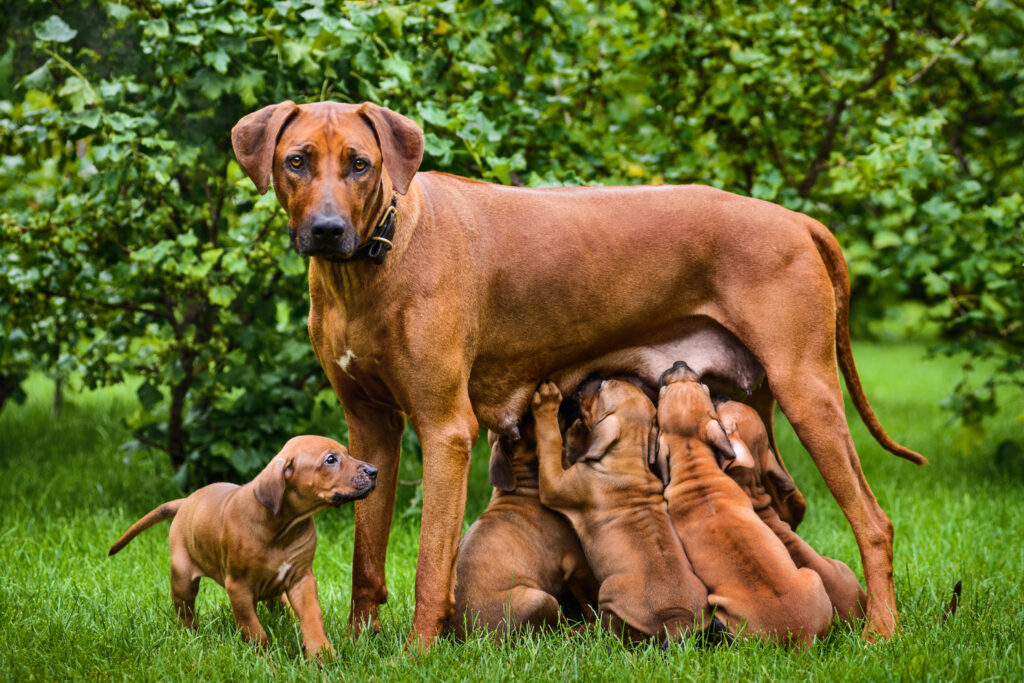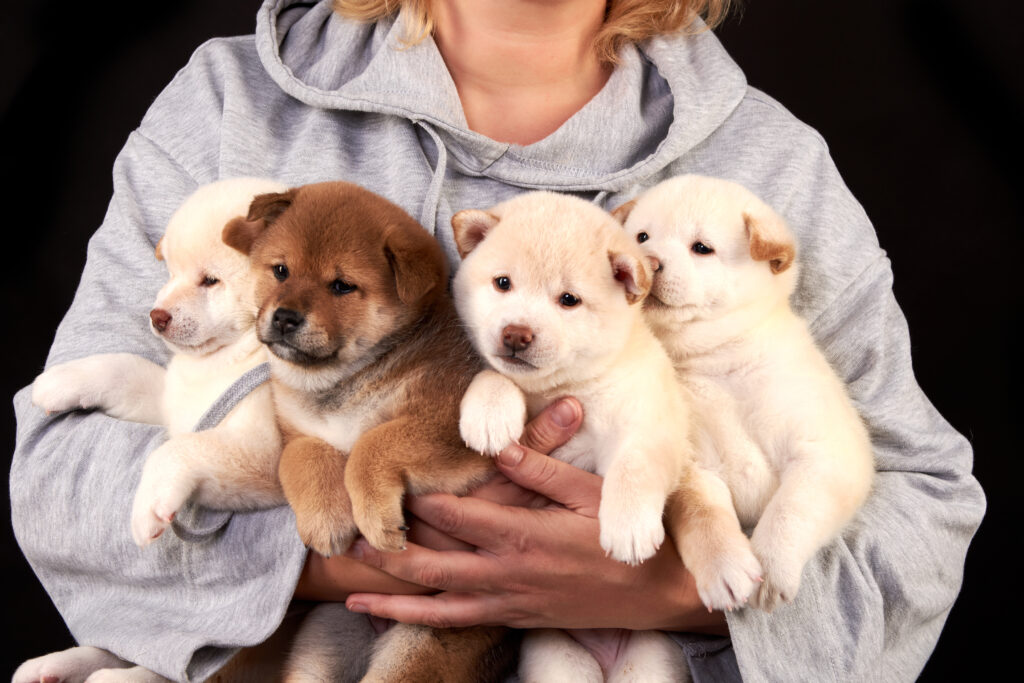Identifying a good quality puppy involves assessing various factors related to the puppy’s health, temperament, and the conditions in which it was raised.
Here are some key aspects to consider when evaluating a puppy…
Health and Appearance
- Physical Condition – Look for a puppy with bright, clear eyes, a clean coat, and healthy skin. There should be no signs of parasites (like fleas or ticks) or unusual odors.
- Weight and Size – The puppy should be at a healthy weight for its age and breed. Consult breed standards to understand the ideal size and weight range.
- Nasal and Oral Health – Check for a clean, moist nose and healthy gums. Avoid puppies with excessive drooling or bad breath.
Socialization and Temperament
- Friendly Behavior – A well-socialized puppy should be curious, friendly, and willing to interact with people. Look for signs of a good temperament, such as a wagging tail and playful behavior.
- Confidence – Assess how the puppy reacts to new people and environments. A good quality puppy should be confident and not overly fearful or aggressive.
- Playfulness – Look for a puppy that engages in play and shows a willingness to explore its surroundings. This indicates a healthy, happy demeanor.
Breeder Reputation
- Responsible Breeder – Choose a puppy from a reputable breeder who prioritizes health, temperament, and ethical breeding practices. Research online reviews and ask for recommendations from veterinarians or breed clubs.
- Health Testing – A responsible breeder will conduct health testing for common breed-specific issues and provide health clearances for the puppy’s parents.
Environment and Living Conditions
- Clean and Safe Facility – Visit the breeder’s facility and ensure it is clean, safe, and well-maintained. Puppies should have plenty of space to play and explore.
- Socialization Opportunities – Good breeders will expose their puppies to various experiences, sounds, and people during their early development stages.
Documentation and Guarantees
- Health Records – Request health records, including vaccinations and deworming history. A quality puppy will have been examined by a veterinarian.
- Contracts and Guarantees – Reputable breeders often provide written contracts outlining health guarantees and return policies, ensuring you are protected as a buyer.
Breeder Knowledge
- Ask Questions – A good breeder should be knowledgeable about the breed and willing to answer your questions about the puppy’s lineage, care, and training needs.
- Education Focus – Responsible breeders often prioritize educating new puppy owners about training, socialization, and health care.
Avoiding Red Flags
- Puppy Mills – Be cautious of breeders who have multiple litters available or prioritize profit over the well-being of the puppies. Puppy mills often produce lower-quality puppies with health and behavioral issues.
- Pressure to Buy – Avoid sellers who pressure you to make a quick decision or do not allow you to visit the puppy in person.
A good quality puppy should exhibit healthy physical traits, a friendly temperament, and come from a responsible breeding environment. Take your time to research, ask questions, and assess the puppy and its surroundings carefully. By doing so, you can find a healthy, well-socialized puppy that will thrive in your home.


